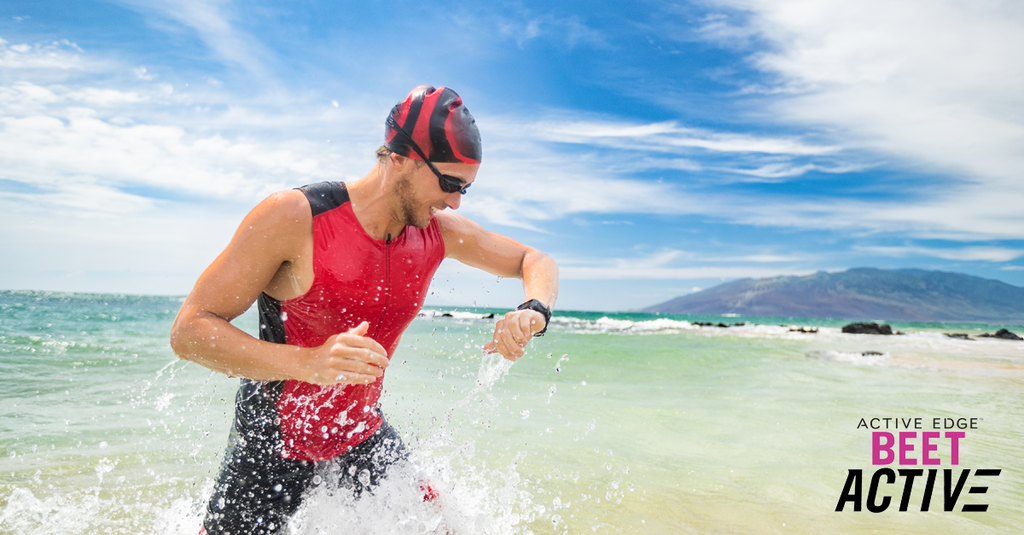Some runners swear by drinking beetroot juice as part of their running diet. Does it work? ASICS nutritionist Ruth explains the science…
What’s the science behind drinking beetroot juice?
“Beetroot juice is naturally high in dietary nitrates, which are natural inorganic components of plant foods. Once dietary nitrates are consumed they are quickly absorbed and converted to nitrite then further reduced to nitric oxide. It is this nitric oxide that may boost exercise performance,” explains Ruth McKean, ASICS Pro Team nutritionist.
Can it really lead to a PB?
One of the most consistent findings from studies conducted into beetroot juice is improved efficiency – or reduced energy cost – during exercise, says Ruth. Exercise efficiency is one of the key physiological components predicting endurance performance as it directly determines the speed or power that you can maintain at a particular rate of oxygen consumption. If for a given speed you are able to reduce the oxygen cost of exercise you improve overall efficiency.
The exact mechanisms of how elevated levels of nitric oxide works to improve efficiency is still not clear, but research indicates that more efficient use of oxygen at submaximal levels of exercise lowers the energy needed to transport energy within cells – hence you’ll be more metabolically efficient at a cellular level.
There appears to be an even greater effect in less well trained individuals too. In a recent review paper that looked at the best research studies of dietary nitrates, all 11 trails conducted in untrained individuals showed a favourable result, compared to only seven out of ten trials in trained individuals. However even an improvement of 0.3% for a well-trained or even an elite athlete could be significant in some events. It’s worth noting however that no research has been published (as far as I know) in marathon running or even half marathon distances.
What are the main benefits and concerns?
There’s convincing evidence that eating fruit and vegetables will reduce the risk of cardiovascular disease. Understanding what is in these foods to have these favourable effects is still ongoing, but it is shown that nitric oxide is likely to improve cardiovascular health.
Historically research has shown that dietary exposure to nitric oxide is harmful to human health with links to a risk of stomach cancer, but it is very likely that this is linked to an unhealthy source of nitrates, such as foods containing sodium nitrate that is often used to preserve processed meats. Processed meats are not encouraged as part of a healthy diet,” Ruth advises.
Ruth’s take away points:
Natural common sources of nitrate include fennel, leek, parsley, celery, cress, lettuce, beetroot, spinach, rhubarb and rocket salad.
When you use a beetroot drink the concentration in your blood will typically peak at two to three hours but will remain elevated for at least six hours before starting to decrease to pre –supplemented levels. Ruth suggests consuming dietary nitrate 2 – 3 hours before a marathon race so that is elevated throughout the race.
You need to consume 300-450 milligrams of dietary nitrates to get the associated physiological benefits.
Both ‘acute’ and ‘chronic’ loads appear to have an effect. If you choose to do a more chronic load (ie a gradual build up), do this via natural foods in the run up to a race and then some beetroot juice on the morning of the race. Use only a chronic load up to 15 days before your race or an acute load (ie a quick load) of 300 – 450mg on the morning of a race. Boost your overall dietary nitrates by including more leafy greens and beetroot salad – plus you’ll gain the benefits of other nutrients in these foods too.
The effect of sustained elevated levels from a very concentrated source is not known, so I wouldn’t yet recommend a daily dose of a high dietary nitrate supplement, says Ruth. Chronic use may affect adaptations to training, but it’s only speculation at this stage.
Avoid supplements with the wording “nitric oxide”. “These often contain L-arginine as the active ingredient, but there is little evidence to back this up,” explains Ruth.
(This article was published on the RunnersWorld Website)
If you would like to purchase Active Edge BeetActive please click HERE!
______________________________________________________________________________




